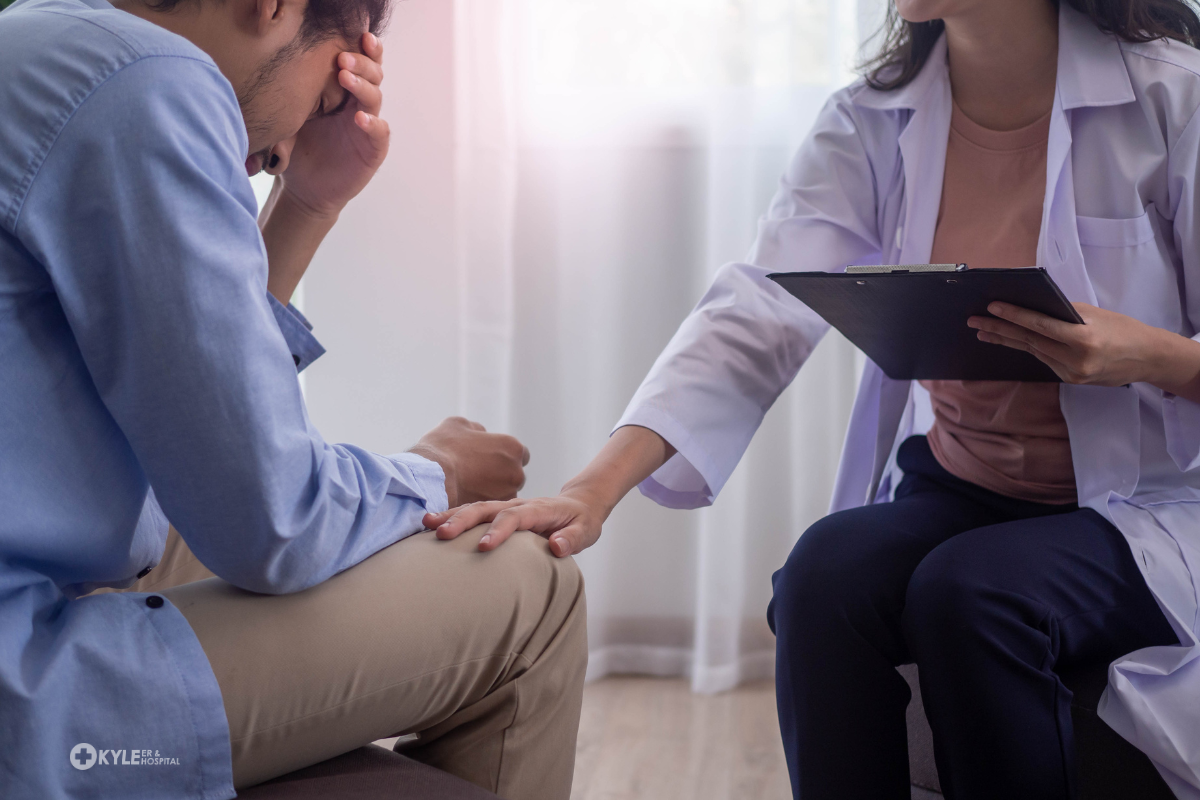Heart attacks and strokes are life-threatening conditions that can cause significant damage if not treated quickly. Learn the early warning signs so that you can seek emergency care without delay. Recognizing the signs of a heart attack of stroke could be the difference in saving a life.
Signs of a Heart Attack
A heart attack occurs when the blood supply to part of the heart muscle is blocked, leading to damage. Recognizing the symptoms early can make a life-saving difference. Here are some of the most common signs of a heart attack:
1. Chest Pain or Discomfort
The most common symptom of a heart attack is pain or discomfort in the center or left side of the chest. This feeling may come and go, or it may be constant. It can feel like pressure, tightness, squeezing, or fullness.
2. Pain in the Upper Body
Pain from a heart attack can radiate beyond the chest to areas such as the arms (especially the left arm), back, neck, jaw, or stomach.
3. Shortness of Breath
Feeling breathless, even when you’re at rest or not exerting yourself, is a serious warning sign. This may occur alongside chest discomfort or on its own.
4. Nausea, Lightheadedness, or Sweating
Some people experience nausea or vomiting, dizziness, and cold sweats, which can be common signs of a heart attack, particularly in women.
5. Fatigue
Extreme tiredness or fatigue, especially if it’s sudden and unexplained, can be a sign of a heart attack, particularly in women.
Signs of a Stroke
A stroke happens when there is a blockage or rupture of blood vessels in the brain, depriving brain tissue of oxygen. The quicker a stroke is treated, the better the chances of minimizing damage. If you experience any of the following signs, it’s crucial to seek emergency care right away:
1. Sudden Numbness or Weakness
One of the hallmark signs of a stroke is sudden numbness or weakness, often affecting just one side of the body. You may notice that your face droops on one side, or that one arm or leg feels weak or difficult to move.
2. Sudden Confusion or Trouble Speaking
A person having a stroke may have difficulty speaking or understanding speech. They may slur their words or be unable to form coherent sentences.
3. Sudden Trouble Seeing
Blurred or double vision, or a sudden loss of vision in one or both eyes, can be a warning sign of a stroke.
4. Sudden Severe Headache
A sudden, intense headache, often described as the worst headache of your life, can be a sign of a stroke, particularly if it is accompanied by other symptoms like nausea or vomiting.
5. Sudden Trouble Walking
A stroke can cause sudden difficulty with coordination, balance, or walking. You may feel dizzy, unsteady, or unable to stand.
When to Seek Emergency Care
If you or someone you are with experiences any of the above symptoms, it is essential to seek emergency medical care immediately. Time is of the essence when it comes to heart attacks and strokes, and the sooner treatment is received, the better the outcome. Here are some guidelines to help you determine when to seek emergency care:
• For Heart Attacks: If you experience chest pain or discomfort, shortness of breath, or any other warning signs, do not wait to see if the symptoms go away. Call 911 or go to the nearest emergency room immediately. Even if the symptoms seem mild or go away, it’s better to be cautious and get checked out.
• For Strokes: The American Stroke Association uses the acronym F.A.S.T. to help recognize stroke symptoms:
- Face Drooping: Does one side of the face droop or is it numb? Ask the person to smile.
- Arm Weakness: Is one arm weak or numb? Ask the person to raise both arms.
- Speech Difficulty: Is speech slurred, or are they unable to speak? Ask them to repeat a simple sentence.
- Time to Call 911: If you notice any of these symptoms, call 911 immediately.
It is also important to note that symptoms of both heart attacks and strokes can sometimes differ from person to person, especially for women. Never ignore any signs that feel unusual or alarming.
If you or someone you know experiences symptoms of a heart attack or stroke, don’t wait — seek emergency medical care immediately.
Whether it’s from a fall, sports injury, or a car accident, bone injuries require immediate medical attention. At Kyle ER & Hospital, we understand that when it comes to broken bones, timely treatment is crucial.
Why Timely Treatment Matters
When you break a bone, the clock starts ticking. The human body is designed to heal itself, but for the healing process to be as effective, intervention is often necessary. Here’s why getting immediate care for a broken bone or fracture is essential:
1. Prevention of Further Damage
A bone fracture can also damage nearby tissues, nerves, and blood vessels. Delaying treatment may increase the risk of these injuries worsening, which could lead to complications. Medical professionals can assess the extent of the damage, stabilize the injury, and prevent it from becoming more severe.
2. Pain Relief and Control
A fracture can be incredibly painful. Appropriate medical care includes pain management, providing immediate relief and making treatment more comfortable.
3. Improved Healing and Reduced Risk of Complications
When bones are misaligned after a fracture, they may heal improperly, leading to deformities or long-term functional problems. Immediate treatment often involves setting the bone correctly and ensuring it’s immobilized. The sooner the bone is aligned and stabilized, the better the chances are for a full recovery.
4. Infection Prevention in Open Fractures
Open fractures, where the broken bone pierces the skin, pose a high risk of serious infection. These injuries are medical emergencies that require immediate attention. Prompt and thorough wound cleaning, administration of intravenous antibiotics, and sometimes surgical intervention (debridement) are critical steps.
5. Faster Recovery
The earlier you seek treatment; the sooner you can begin the healing process. Delayed treatment can extend the recovery period and increase the risk of complications that can affect your mobility. Timely intervention can shorten your overall recovery time, helping you return to your normal activities sooner.
Don’t Wait
Seeking immediate medical treatment for bones injuries is crucial for preventing further damage, managing pain, and promoting proper healing. Prompt care protects surrounding tissues, nerves, and blood vessels, and ensures the bone is correctly aligned and stabilized. All these thigs can help reduce the risk of long-term complications. In cases of open fractures, urgent intervention is vital to prevent serious infections. Early treatment also leads to a faster recovery, minimizing downtime and helping individuals return to daily activities more quickly and safely.
When dealing with a broken bone or fracture, you need access to expert care, fast. At Kyle ER & Hospital, we specialize in providing rapid, high-quality treatment for all major and minor emergencies. Our state-of-the-art facility and advanced diagnostic equipment allow us to quickly assess injuries, provide pain relief, and begin the treatment process immediately.
We know that the road to recovery can be challenging, but with prompt and effective treatment, we make sure you are on your way to healing faster and with fewer complications.













2 Responses
Thanks for the points shared using your blog. Something else I would like to say is that weight reduction is not exactly about going on a celebrity diet and trying to shed as much weight as you can in a set period of time. The most effective way to lose weight is by having it little by little and obeying some basic ideas which can help you to make the most from your attempt to drop some weight. You may be aware and be following some of these tips, yet reinforcing know-how never damages.
Fantastic website. Lots of useful information here. I’m sending it to several friends ans also sharing in delicious. And of course, thank you to your effort!